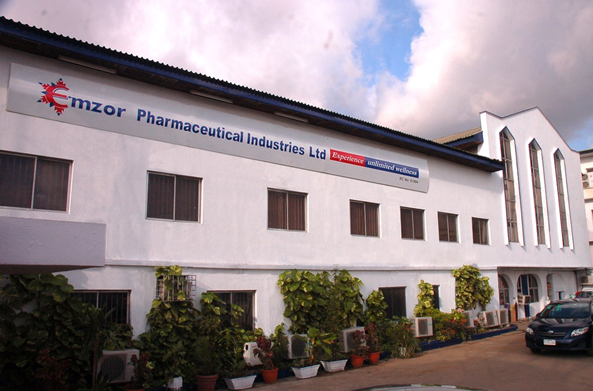Emzor Pharmaceuticals Industrial Limited, says that the trend of manufacturing only 30 percent and importing 70 percent of drugs by pharmaceutical companies in the country , will soon end.
Funke Asiru, the company’s Director of Strategy, anticipated this development in the industry, following the federal government’s recent executive order which introduced zero tariffs, excise duties and value-added tax (VAT) on imported pharmaceutical inputs.
Asiru made this known during the 9th forum of the Nigeria-EU business forum (NEUBF), themed, ‘Investing in Jobs and Sustainable Future’.
Fielding question on Asiru described the executive order as an important step to boost local productions and would bring down the prices of drugs in Nigeria and help manufacturers increase their capacity.
“I see that a lot of manufacturers, particularly as many of them are running and they are not using their full capacity, the undercapacitised ones will increase their capacity.
“We will see prices going down, which is exactly what you want to happen. We will see increased competition hopefully, this will be transferred to the patients who really need it. I think that is just the start.
We are still not producing enough to be able to give enough to our people but I think that we need to think a little bit more in terms of how do we diversify as much as anything else,” she said.
She further disclosed that Emzor will launch a plant for the production of pharmaceutical ingredients by the end of the year.
“We’ve got our API plant, we have our CEPHR project, we have a misoprostol suite which we are trying to put together. We have a beta-lactam plant that is coming up.
By the end of the year, you will see all of these things being launched,”she said.
In April, Emzor announced plans to construct an API facility in Sagamu, Ogun state, worth $23 million (about N25 billion) to combat malaria in Nigeria and sub-Saharan Africa.
According to the director, they include the active pharmaceutical ingredients (APIs) plant, CEPHR project, and misoprostol suite and beta-lactam plant.
In the pharmaceutical industry, APIs are the active ingredients contained in medicines.
They are produced from materials with a specified strength and chemical concentration.
On the other hand, beta-lactam is an antibiotic used in the management and treatment of bacterial infections. While misoprostol is a medication used to prevent and treat ulcers, CEPHR research focuses on chronic viral infections.
Asiru said the company hopes to put part of the savings and profits that would be realised from the executive order into “diversification and do new things.”
“Remember our disease profile is changing. Our focus has been on infectious diseases, but at the same time we are seeing a lot of non-communicable diseases as well and for a lot of the time, a lot of the pharmaceutical companies are not producing those sorts of drugs,” Asiru said.
“They are still importing those ones…. We are very proud of our legacy products, the paras of this world, one of the first ones introduced, locally made but we also want to do new things.











